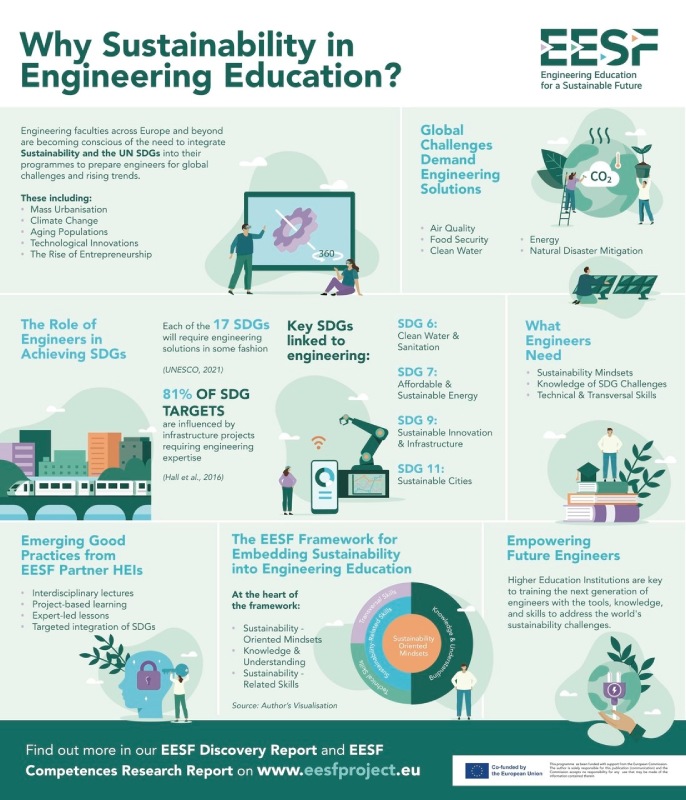

The Engineering Education for a Sustainable Future (EESF) Discovery Report lays the foundation for embedding sustainability in engineering education. This report explores the integration of sustainability across engineering curricula, assessing the current state of sustainability education in higher education institutions (HEIs) and industry needs.
Key Insights:
Recommendations for HEIs:
The report serves as a knowledge base for the EESF Project, supporting the development of tools and resources for educators to embed sustainability effectively in engineering education.
📖 Read the full report here:


The Embedding Sustainability Competences Research Report provides an in-depth analysis of sustainability skills in engineering education. Based on interviews with 53 professionals, including HEI faculty and industry leaders, the report highlights best practices and identifies gaps in current educational approaches.
Key Findings:
Key Recommendations:
This report is a vital resource for HEIs looking to enhance their engineering programmes and equip graduates with the skills needed for a sustainable future.
📖 Read the full report here: